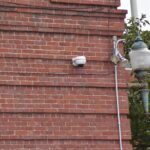This year, our nation celebrates the 400th anniversary of American shipbuilding, a birth that took place right here in Maine. When a small band of rugged English settlers at Popham Colony built the 30-ton Virginia in 1607, their goal was to demonstrate that they had the natural resources and the skilled hands to launch this vital industry in North America. Four centuries later, shipbuilding continues to play an important role in our state’s economy and our culture. One of the most rewarding moments of my Senate service was when I served as the sponsor of the USS Farragut as she was christened at Bath Iron Works in 2005. As I smashed the champagne bottle on the ship, I thought of the brave Americans who would serve on that ship. I thought of all the brave Americans who have served in the United States Navy throughout our history, and the legacy of courage, devotion to duty, and sacrifice they have created.
But I also thought of the dedicated, highly skilled men and women who build our ships. From Old Ironsides to the ironclads, from Liberty ships to the Arleigh Burkes and now to the Zumwalts, from sail to steam to the atom, America’s shipyards have truly been the arsenal of democracy.
Much has changed over the years, but the threats to freedom remain. As a former Chief of Naval Operations once said, “One of the best ways to deal with the global instabilities that will continue into the 21st century is by being there.” The lesson of history is that seapower gets us there.
It is a lesson we must never forget. With the smallest United States Navy fleet since the First World War, and with China advancing its naval fleet by leaps and bounds, we must reverse course. Low rates of procurement, combined with the year-to-year instability and lack of predictability in funding, are profound threats to our shipbuilding industry. Skilled shipbuilders and engineers are not likely to remain in the industry without the certainty of stable employment. If this experience and brainpower are lost, and if new engineers are discouraged from entering the field, our nation will lose its ability to build ships. This would be disastrous for America and for the world. Fortunately, this year’s Defense Department authorization will help put our Navy on track to achieve the 313-ship fleet that the Chief of Naval Operations states is necessary.
I am grateful and honored that the American Shipbuilding Association recently presented me with its 2007 Herbert H. Bateman Award. The award is named for the late Herbert Bateman, who was a strong advocate of the U.S. maritime industry and America’s shipyards during his 18 years of service in the House of Representatives. It recognizes those who have shown outstanding leadership in the promotion of a strong U.S. shipbuilding industrial base. The American Shipbuilding Association includes the nation’s six largest shipyards, including Bath Iron Works, and more than 70 companies engaged in the manufacture of ship systems and components. Dugan Shipway, the President of Bath Iron Works, nominated me for this prestigious award.
As a member of the Senate Armed Services Committee, I have seen first-hand that seapower is crucial to defend our freedom and to extend the blessings of freedom to others. I have fought for shipbuilding and acquisition policies that will keep the United States Navy pre-eminent, our shipyards strong, and our skilled workers building the best ships in the world. Working together, we can ensure that what began four centuries ago at a remote outpost on the rocky coast of Maine continues far into the future, and that America’s shipyards will always be there to defend freedom.
Presque Isle, ME
21
Clear
Houlton, ME
22
Clear
Caribou, ME
22
Clear
Fort Kent, ME
16
Clouds
Change Location
- Presque Isle
- Houlton
- Caribou
- Fort Kent
© 2024 Bangor Publishing Company.








